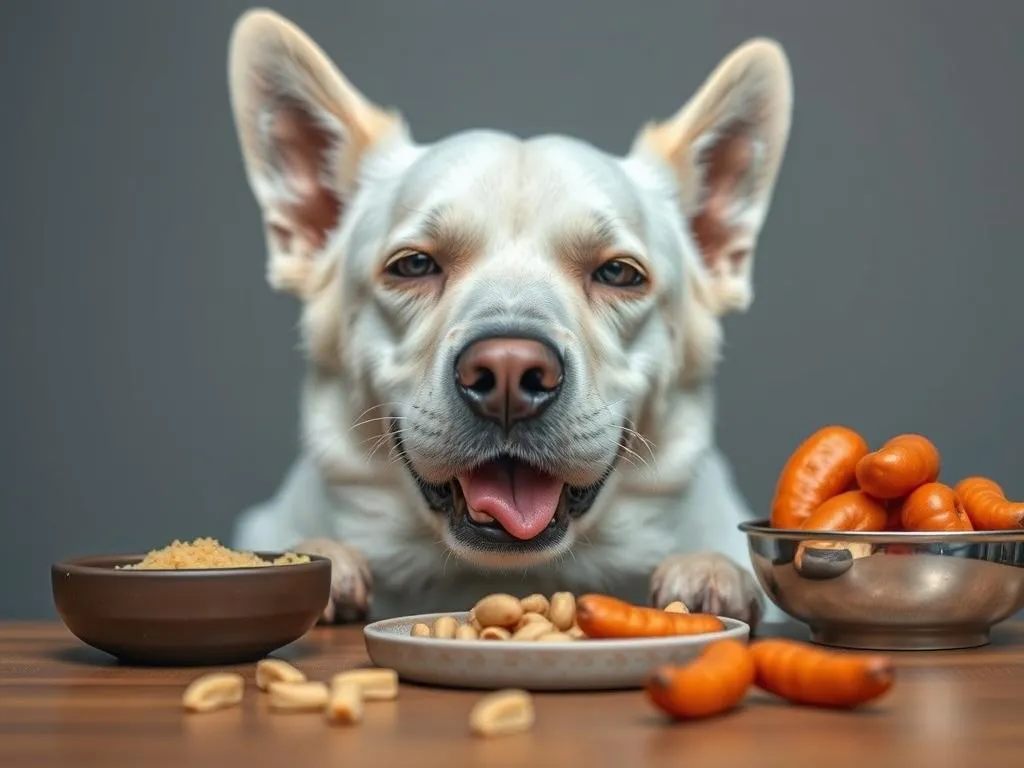
Understanding dog health care is crucial for every pet owner. With the growing trend of pet owners sharing their meals with their furry companions, it becomes essential to know which human foods are safe for dogs and which ones to avoid. This article aims to provide a comprehensive overview of what human foods can dogs eat, ensuring that you can treat your dog safely while promoting their overall health.
Understanding Dog Nutrition
Importance of Balanced Diet
Dogs, like humans, require a balanced diet that includes a variety of nutrients to maintain their health. A proper diet consists of proteins, fats, carbohydrates, vitamins, and minerals.
- Proteins are essential for growth, maintenance, and repair of tissues.
- Fats provide energy and help absorb certain vitamins.
- Carbohydrates serve as a primary energy source.
- Vitamins and minerals play crucial roles in various bodily functions, including immune response and bone health.
A balanced diet is vital for a dog’s well-being, influencing everything from their energy levels to their coat condition.
Common Misconceptions about Dog Food
There are many myths surrounding dog nutrition, often leading to confusion about what human foods can dogs eat. One common misconception is that it’s perfectly safe to feed dogs human food in large amounts. While some human foods are safe, they should only be a small part of a dog’s diet.
Understanding the differences between human and canine nutritional needs is paramount. Dogs process certain nutrients differently than humans, which is why some foods that are healthy for us can be harmful to them.
Safe Human Foods for Dogs
Fruits
Several fruits are not only safe for dogs but also provide various health benefits:
- Apples: Rich in vitamins A and C, and fiber. Remove the seeds and core before feeding.
- Bananas: A good source of potassium, vitamins, and fiber. They can be given in moderation due to high sugar content.
- Blueberries: Packed with antioxidants, they can help combat aging and promote heart health.
When preparing fruits for your dog, always wash them thoroughly and ensure that any seeds or inedible parts are removed.
Vegetables
Many vegetables are beneficial for dogs:
- Carrots: High in beta-carotene and fiber, they can help with dental health.
- Green Beans: Low in calories and high in fiber, they are great for dogs on a diet.
- Sweet Potatoes: Rich in vitamins and fiber, they make a healthy treat when cooked and mashed.
It’s best to serve vegetables steamed or cooked, and cut into small pieces to prevent choking.
Proteins
Protein is essential for your dog’s diet, and there are several safe sources:
- Chicken: Cooked without seasoning, chicken is a lean protein source that many dogs love.
- Turkey: Similar to chicken, turkey is safe for dogs as long as it’s cooked properly.
- Fish: Salmon and sardines provide omega-3 fatty acids, promoting a healthy coat and skin. Ensure they are cooked and free of bones.
Always avoid seasoning and ensure all proteins are well-cooked to eliminate harmful bacteria.
Grains
Some grains can be beneficial for dogs, including:
- Rice: A great source of carbohydrates, plain white or brown rice can aid in digestion.
- Oats: High in fiber and good for heart health, oats can be a great addition to a dog’s diet.
- Quinoa: A complete protein source that is also gluten-free, making it a safe option for dogs with sensitivities.
Grains should be served in moderation and well-cooked to aid digestion.
Dairy
Many dogs can enjoy certain dairy products:
- Plain Yogurt: A good source of probiotics, it can aid digestion.
- Cheese: Most dogs enjoy cheese, but it should be given in moderation due to its fat content.
However, some dogs are lactose intolerant. When introducing dairy, start with small amounts and monitor for any adverse reactions.
Human Foods to Avoid
Toxic Foods
Certain human foods can be toxic to dogs and should always be avoided:
- Chocolate: Contains theobromine, which is highly toxic to dogs.
- Grapes and Raisins: These can cause kidney failure in dogs.
- Onions and Garlic: Both can damage red blood cells and lead to anemia.
Understanding why these foods are harmful is essential for keeping your dog safe.
Foods that Should Be Fed in Moderation
While some foods are safe, they should only be offered sparingly. Foods like nuts, certain oils, and fatty cuts of meat can lead to digestive upset or obesity.
- Nuts: While some nuts are safe, they can be high in fat and difficult for dogs to digest.
- Oils: Avoid high-fat oils which can lead to pancreatitis.
- Fatty Meats: Can contribute to obesity and pancreatitis if fed regularly.
Signs of Food Toxicity
If a dog ingests harmful foods, the following symptoms may occur:
- Vomiting
- Diarrhea
- Lethargy
- Loss of appetite
In case of suspected poisoning, contact your veterinarian immediately and provide details of what your dog may have ingested.
How to Introduce Human Foods to Your Dog
Gradual Introduction
When introducing new human foods, it’s best to do so gradually. Start with small amounts and observe your dog for any adverse reactions. This helps to identify any food sensitivities or allergies.
Portion Control
Determining proper serving sizes is crucial. The amount of human food you can safely offer depends on your dog’s size and breed.
- Small dogs might only need a couple of pieces of fruit or a small spoonful of cooked vegetables.
- Larger breeds can handle larger portions, but moderation is key to preventing obesity and digestive issues.
Consulting with a Veterinarian
Before making any significant changes to your dog’s diet, it’s always a good idea to consult with a veterinarian. They can provide tailored advice based on your dog’s specific health needs and help formulate a balanced diet that includes safe human foods.
Practical Tips for Dog Owners
Meal Planning
Creating a balanced diet can be simple with meal planning. Consider incorporating safe human foods into your dog’s meals. Here are some easy recipe ideas:
- Chicken and Rice: Cooked chicken mixed with plain boiled rice and carrots.
- Vegetable Stew: A mix of dog-friendly vegetables like carrots, peas, and sweet potatoes simmered in low-sodium broth.
- Fruit Parfait: Plain yogurt layered with chopped apples or blueberries as a treat.
Avoiding Bad Habits
Feeding dogs human food regularly can lead to bad habits. Here are a few pitfalls to avoid:
- Feeding Table Scraps: This can lead to begging behavior and obesity.
- Overindulgence: Treats should only make up a small portion of your dog’s overall diet.
Using Human Foods as Training Treats
Healthy human foods can be excellent training rewards.
- Carrot sticks or small pieces of chicken can be motivating treats.
- Blueberries or small bits of apple can also serve as nutritious rewards.
Using human foods as training treats can enhance your dog’s training experience while promoting better health.
Conclusion
Understanding what human foods can dogs eat is vital for their health and happiness. By focusing on safe fruits, vegetables, proteins, grains, and dairy, you can enhance your dog’s diet while avoiding toxic foods and those that should be fed in moderation. Always introduce new foods gradually, maintain proper portion control, and consult your veterinarian when making dietary changes.
Responsible feeding practices will not only enrich your dog’s life but also contribute to their overall well-being.









